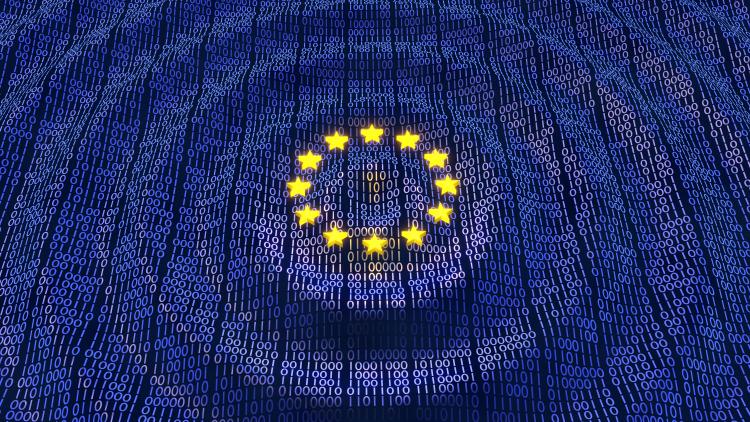
Strengthening Europe’s competitiveness and strategic autonomy
When introducing the French Presidency of the European Council, President Macron described his vision of Europe as the following: “We must move from a Europe of cooperation within our borders to a powerful Europe in the world, fully sovereign, free to choose and master of its destiny”1.
Strategic autonomy provides the European Union with the ability to make its own decisions. Strategic autonomy is not only an important step for the survival of our European decision-making, but it will actually create an undeniable position on a global platform.
Without strategic autonomy, the destiny of the European Union will be in the hands of foreign powers who do not share the same values as we do. Think of the Chinese Communist Party, which has turned China into the most advance repressive state the world has ever known.
Take Russia, which is using its gas supply to play the Member States of the EU against each other.
Fortunately, we do not have to deal with Trump anymore, but it is not unthinkable that he or a similar leader would lead the biggest economy of the world again. And last but not least the Turkish leader Erdogan, who is misusing migrants as pawns in his sinister strategy to increase his power base.
To make a fist on the world stage the EU must first reinvent itself, to become more resilient and more dynamic to face both internal and external challenges.
Internal challenges
Like the rest of the world, including all the major economies, Europe was heavily affected by the outbreak of the covid-19 crisis and ensuing economic slump. Within just a few weeks from the sudden appearance of the virus in Europe, our economy was shedding millions of jobs, whole sectors witnessed unprecedented contraction, global supply chains were under immense pressure and an insecurity almost unknown to our generation had set it. But above all, the cost in human lives was certain to be high.
Taken together, all these simultaneous pressures on our healthcare systems, economy and the way of life in a market economy illustrated our vulnerabilities when it comes to global supply chains and, at the same time, our inextricable ties to our major economic partners. Europe’s open strategic autonomy (OSA) must be understood in this highly dynamic and complex context of global trade flows, resource dependency and ongoing environmental and health crises.
The Covid-19 crisis made it abundantly clear that we must work hard and move from the current state of vulnerability and dependency to a future state of enhanced resilience. Our future prosperity and competitiveness depend on the strategic decisions taken today: Open Strategic Autonomy provides the framework we need to work under with these goals in mind.
The very goals of the European Green Deal (EGD), which was initiated before Covid-19 struck, laid foundations for policies which contribute to our open strategic autonomy. The twin green and digital transition, which lie at the heart of the EGD, aim to ensure that Europe has a relative autonomy based on domestic renewable energy sources and efficient, circular use of our scarce natural resources. In that sense, the work towards reaching an OSA has already began and is in line with our overarching policy goals.
What are the major issues related to our strengths and vulnerabilities that we must address head on? Obviously, we must build on the assets that we already have: we must strengthen the resilience of our strategic economic assets and industries, from intellectual property rights to critical infrastructure.
Robotics is an economic sector where we outperform our competitors: we produce “more than a quarter of the world’s industrial and professional service robots (e.g. for precision farming, security, health, logistics)2.”
Moreover, Europe is a world leader in offshore wind, electric vehicles and green hydrogen technology. Our efforts should be directed at unleashing the immense creative potential of the private sector and exploiting synergies between all relevant EU and national policies to ensure that we maintain and expand our edge in these technologies and are in the position to reach our ambitious 2030 and 2050 climate targets.
The EU’s OSA will benefit from the green transition. The transition toward a renewables-based economy will reduce drastically our staggeringly high import dependency on fossil fuels, while the effective implementation of a circular economy will help us reduce the need to import critical raw materials. Europe’s industry is based on an older-generation infrastructure and as such is more carbon intensive than our Asian competitors are.
However, Europe has an advanced R&I roadmap to decarbonise which must be implemented effectively. Europe’s energy-intensive industries could be at risk of unfair competition from third countries, by implementing stricter environmental standards; this is why it is of paramount importance to establish and effective and World Trade Organisation (WTO)-compliant carbon border adjustment mechanism.
The key to our success in creating a more resilient society and economy lies in long-term, committed investments in R&I on the one hand and innovation deployment on the other.
The very first precondition is that we reach our target of investments in R&I of 3% GDP. Furthermore, we need to focus our efforts also on digital industries, which already permeate our lives and economy and will do even more so in the future.
We should use all existing funds and opportunities to support research in software and hardware start-ups and deep tech and green tech start-ups. We should also look beyond the current framework and create a Sovereign EU Tech Fund already argued for by the leaders of 32 EU ‘unicorns’ – start-ups worth over $1 billion – in order to boost our efforts in this field. We must create conditions for disruptive innovation that will enhance the twin green and digital transitions and thereby strengthen our OSA.
Europe has substantial capabilities in R&I, but the deployment of research outputs into the economy and industry must be enhanced if we are to increase our competitiveness. We must make greater use of Common Industrial Technology Roadmaps, which should link EU and national support programmes and create synergies between R&I centres and industry and thereby strengthen EU industrial ecosystem.
External challenges
On a daily basis, we are confronted with the United States, Russia and China practicing geopolitics on the highest levels. It is time that we give the European Union the tools to stand up as a strong sovereign party supporting and defending our values, our interests and our democracy. Europe will only be able to claim its role on the global stage when it has achieved its full autonomy to decide and act in specific fields.
When Putin invites European politicians to Crimea and Moscow, when China formed its 17+1 initiative3, these global powers not only exposed Europe’s greatest weakness, they also showed their greatest fear; Europe’s strength lies in its unity. When Europe acts as one, it is a global super power to be reckoned with. When Europe is divided, it turns into itself and will be ignored.
Strategic autonomy on key elements could provide the Union with the toolbox to act as one and truly and independently engage in constructive dialogues with the other geopolitical dialogues as well as with any of our partners.
This autonomy should be acquired in order to strengthen the EU’s tools in its foreign affairs toolbox. There are a few clear examples where we can strengthen our position in the world.
In parallel, the EU need to move forward and form a real Defence Union, which would form the European pillar within NATO and further improve the coordination of the military structure and activities of the Member States. Finally, the EU needs to reduce existing dependencies on fossil fuel and become more self-sufficient. When we no longer have to balance our gas market with our values, we will be free to not compromise on what we believe in.
Conclusion
Autonomy is often falsely interpreted as something negative. “autonomy is not protectionism. Quite the opposite!”4 explained Charles Michel in his 2020 lecture to the Bruegel Institute. To understand this is key to understanding the role of a stronger EU within and outside of its own borders. Autonomy is about making our own decisions, making our own alliances and working together with our partners to stand up for our values, our convictions and our way of live.
The wish for a more autonomous Europe has been around for a long time. Today, we are confronted with a world in which we either grant this autonomy or risk becoming superfluous.
_______________________________________________________________________
2 Source: The JRC study on OSA
3 A cooperation between China and Central and Eastern European Countries




